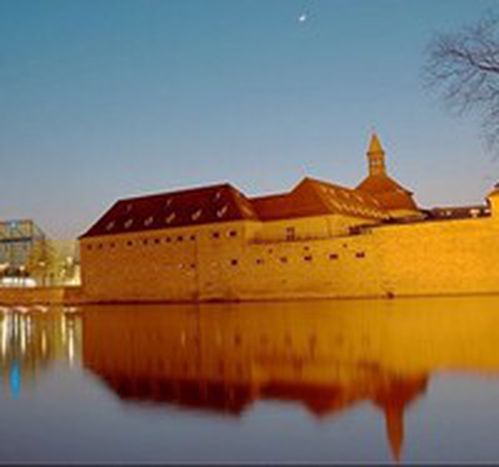
French elite steers clear of university
Published on
Translation by:
 gregory morris
gregory morris
French higher education is characterised by a gulf between universities and the famous grandes écoles; an initially meritocratic system, derived from the French Revolution, which has become dominated by the rich and influential.
The state of French higher education can be summarised in three adjectives: unfair, unequal and undemocratic. And this judgement is not just anyone’s – it comes from Richard Descoings, the Director of the Institute of Political Science in Paris (Sciences Po), one of the grandes écoles unique to France. This is because, during the last two centuries, France has developed a dual system with the grandes écoles (both state-owned and private) on the one side, which choose their future students through examination, and, on the other, universities, where any holder of the baccalauréat (A-level equivalent) can enrol.
Higher education’s schizophrenia
Since competition to enter the approximately 200 grandes écoles is so fierce, there are around 100 institutes providing preparatory classes to enter the prestigious and mostly fee-paying schools, which take nearly 200,000 students. Only a dozen grandes écoles, such as Polytechnique, l’École Normale Supérieure and the National School of Administration pay their students to follow their course. Then, there are the universities, which count 2 million students in their lecture theatres. Suffice to say that war between the two sides is never far away.
In fact, by dividing higher education into two competing systems, France has created a hierarchy in everybody’s mind: the grande école is synonymous with success; university with obscurity. The director of higher education for the Ministry of French National Education himself, Jean-Marc Monteil, stated the obvious: “French higher education is one of the most selective in the world!” For the 200,000 most sought after places in the grandes écoles and the two years of preparatory classes, any sacrifice is justified. There is no interest in joining the ranks of university, where every year 39% of students fail to finish the first year!
The jammed social elevator
But to be selected, you don’t have to be the best. That is in the past. If, until the 1980s, the command of different disciplines was proof of academic success, today there is a great distance “between one side, where the best grandes écoles welcome the majority of their students from the leading classes and prepare them for the most prestigious careers in top management, industry, banking, research, and on the other side universities, notably the faculties of arts and science, which make up an significant number of students from the lower classes and often prepare them for positions in production, technicians, middle management, secondary teachers”, explains Monique de Saint-Martin, a specialist in French elites. The French social elevator seems well and truly jammed.
Even if the grandes écoles are making small gestures towards modifying their image to recruit more children from disadvantaged areas to their establishments, along the lines of Richard Descoings at Sciences Po Paris, the split between universities and grandes écoles is too firmly established. Elsewhere, the state is doing nothing to change things: it still spends half the amount on a university student (6,800 euros) than on a student preparing for the grandes écoles (13,000 euros). And that will not change as long as the economic, administrative and political elites of France avoid university, except for career paths such as law and medicine, traditional monopolies of universities. At the heart of the French government, it is rare to find anybody who can say on their CV that they have spent a single year at university!
A single European system
The separation of higher education into universities and grandes écoles is typically French. There are a few establishments which are similar to the grandes écoles elsewhere in Europe, such as the Spanish engineering schools or, in Italy, the Collegio Superiore in Bologna and the Scuala Normale Superiore in Pisa, which recruit their students through competition. However, in Europe, access to university is more often subject to success in secondary school exams, such as in Belgium, Ireland or Germany. Universities can select the best students, such as in Ireland or Britain, or impose a quota, as in Germany. Greece and Hungary, for their part, use an entrance exam for university, in addition to exams at the end of secondary school. As for the ‘elitist’ aspect, the universities of Oxford and Cambridge have built their reputation on excellence. Germany wants to force its universities into this closed circle and plans to invest 1.9 billion euros, from now until 2010, in a pool of universities, that is to say an elite.
Translated from Ces élites françaises qui désertent l’université


